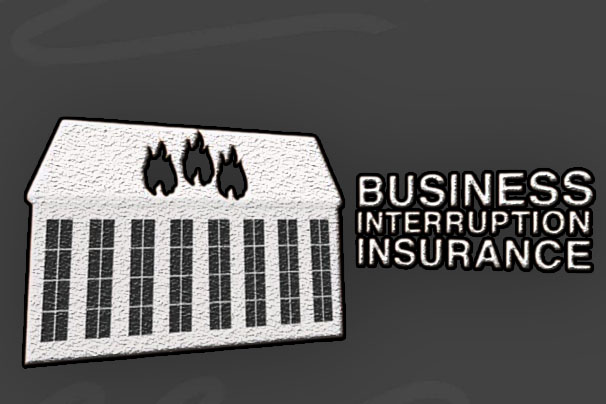
Having a Business Interruption Insurance is a great deal and a necessity to have when you are running a business. Running a business involves various risks, from natural disasters to cyber-attacks. While many entrepreneurs focus on ensuring tangible assets like equipment and inventory, they often overlook protecting their financial income.

This is where the Business interruption insurance comes in. Furthermore, it serves as a financial safety net, which ensures that your business can survive unexpected disruptions and continue to thrive.
What Is Business Interruption Insurance?
Also known as business income insurance, the insurance compensates businesses for lost income resulting from a covered event that disrupts normal operations.
Unlike property insurance, which only covers physical damages, it addresses the harsh financial impact of downtime, like ongoing expenses and lost profits.
Features of Business Interruption Insurance
Some of the key features of this business insurance:
- It provides coverage for lost income during temporary shutdowns.
- This insurance can be bundled with a Business Owner’s Policy for convenience and cost savings
- Also, it helps maintain payroll, rent, and other fixed costs.
Business interruption insurance is crucial for maintaining financial stability during unforeseen events and ensuring a swift recovery.
How Does It Work?
When a covered event occurs, like a fire or storm, and your business is forced to close temporarily, the business interruption insurance steps in.
Step-By-Step Process
When such an incident happens, here’s how the process is initiated:
- Assessing the Incident: The insurer starts by evaluating the cause of the disruption to determine if it is covered under your policy.
- Calculating Losses: The lost income is calculated based on your historical financial records and future projections.
- Claim Approval: After verification, the insurer reimburses the covered losses. This helps you meet financial obligations while your business recovers.
Furthermore, the coverage usually begins after a waiting period, known as the elimination period, typically 48 to 72 hours.
What Does This Insurance Cover?
This insurance covers various financial losses and operational expenses, ensuring your business remains afloat during disruptions.
- Lost Income: This insurance compensates for revenue you would have earned if the disruption had not occurred. For instance, a restaurant forced to close due to a fire receives compensation for lost daily sales.
- Relocation Costs: It covers expenses for temporarily relocating your business to a new location.
- Fixed Operating Expenses: Insurance covers ongoing costs like rent, utilities, and salaries that must be paid even when operations are paused.
- Employee Wages: As an employer, it ensures you can pay employees to retain them during the closure period.
- Loan Payments: The insurance helps you keep up with loan or lease payments during the downtime.
- Taxes: The coverage includes tax obligations to avoid penalties.
- Additional Expenses: The insurance reimburses costs incurred to minimize the impact of the interruption, such as advertising or expedited shipping.
What It Doesn’t Cover
Here are resources that aren’t covered by this insurance:
- Undocumented income not reflected in financial records
- Long-term economic decline unrelated to specific covered events
- Losses due to pandemics (unless specifically included in the policy).
How Much Does This Insurance Cost?
The cost of business interruption insurance varies based on several factors like:
- Industry Type: High-risk industries like manufacturing or hospitality may face higher premiums.
- Revenue and Payroll: Policies covering higher income or extensive payrolls are more expensive.
- Coverage Limits: Higher coverage limits and longer payout periods increase premiums.
- Location: Businesses in areas prone to natural disasters, like hurricanes or earthquakes, face higher costs.
- Deductibles and Waiting Period: Opting for a shorter elimination period or lower deductible can increase costs.
On average, this business insurance costs 5-10% of your property insurance premium.
Factors to Consider Before Buying A Policy
Before purchasing business interruption coverage evaluate the following:
- Risk Exposure: Assess the likelihood of disruptions, such as natural disasters or utility failures.
- Policy Limits: Ensure the coverage amount is sufficient to sustain your business during prolonged closures.
- Waiting Period: Select a reasonable waiting period based on your cash reserves and risk tolerance.
- Exclusions: Review the policy for exclusions, like pandemic-related losses, to avoid surprises.
- Insurance Provider: Choose a reputable insurer with experience in providing business interruption coverage.
Is Business Interruption Insurance Worth It?
For most businesses, the answer is yes. A temporary shutdown can lead to significant financial strain, from lost revenue to unpaid bills. What’s more, business interruption insurance provides the resources needed to recover and rebuild.
Without business interruption insurance, recovering from such events could drain savings or even lead to permanent closure.
Frequently Asked Questions
Here are some frequently asked questions you can check out:
What is the difference between business interruption insurance and property insurance?
The Property insurance covers physical damages to assets, such as buildings and equipment. On the other hand, the business interruption insurance covers the financial impact of operational downtime caused by covered events.
Does business interruption insurance cover COVID-19?
Most policies exclude pandemics, but some insurers offer specific endorsements for such events.
How is the coverage amount determined?
The coverage amount is based on your business’s historical income, operating expenses, and future projections.